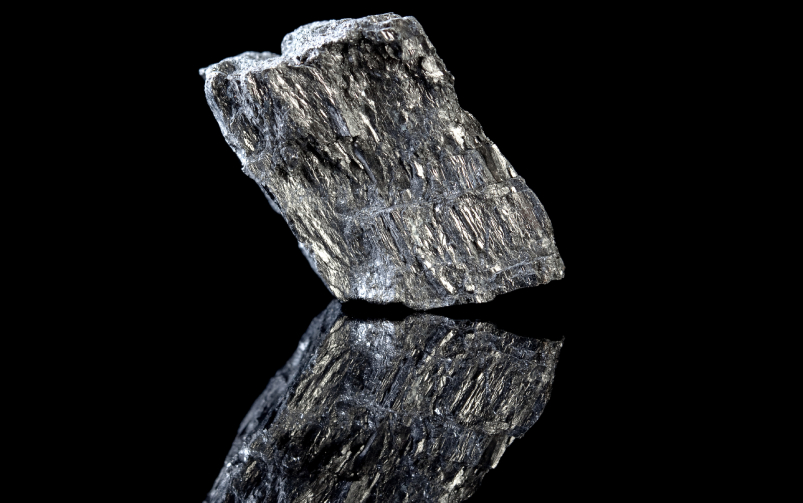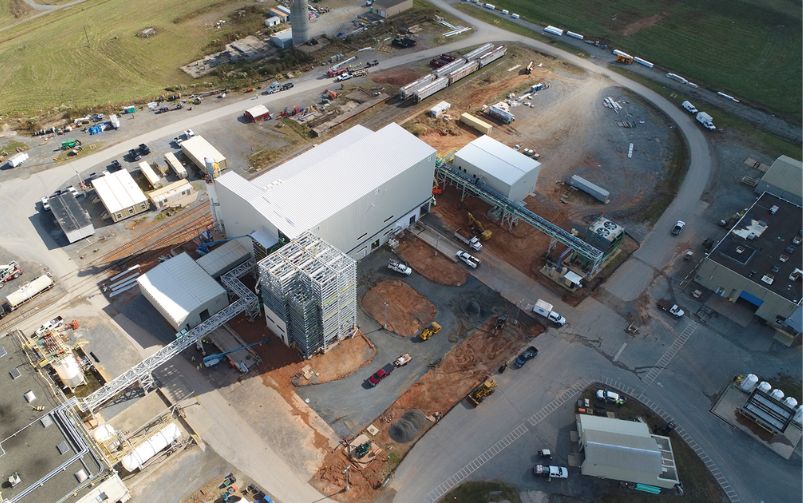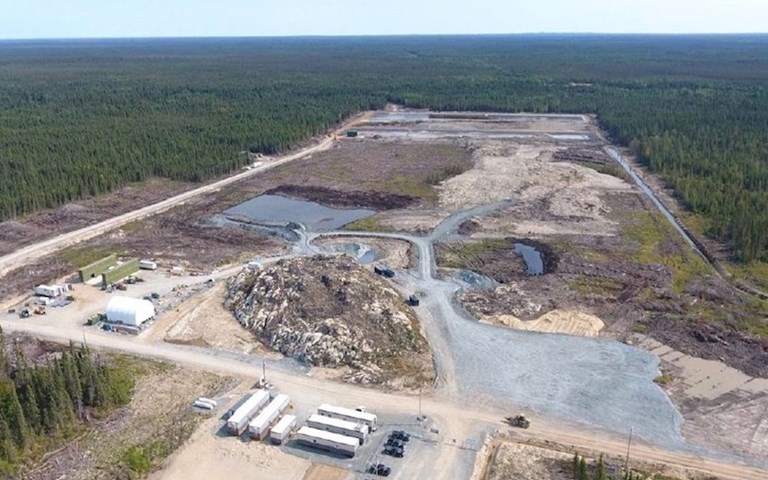Gowest Gold is pressing ahead with the reopening of the Bradshaw mine, which is part of its North Timmins gold project. Courtesy of Gowest Gold.
Welcome back to your weekly mining news recap, where we catch you up on some of the news you may have missed. This week’s headlines include the federal government calling for a halt on deep sea mining, the International Energy Agency’s first annual critical minerals market review and a $10 million boost to a carbon capture pilot project at Teck’s Trail Operations.
After 13 days, a tentative deal was reached on Thursday between the International Longshore and Warehouse Union Canada and the B.C. Maritime Employers Association, which will put an end to the B.C. port strike, as reported by the CBC. The four-year deal still needs to be ratified by both sides and no details about the terms have been made public yet. On Tuesday, Saskatchewan potash producer Nutrien, which exports nearly all of its potash, announced it was cutting production at its Cory mine in response to the strike. Approximately 63,000 shipping containers were stuck on vessels and waiting to be unloaded at B.C. ports. Working through the backlog of shipments is expected to take several weeks.
The Canadian government supports an international moratorium against deep sea mining, as reported by Business in Vancouver. Canada declared its own moratorium on deep sea mining in areas under its jurisdiction earlier this year. Delegates from around the world are currently in the throes of International Seabed Authority negotiations to write the rules for deep sea mining, a process that was initially sparked when Vancouver-based The Metals Company applied to mine an abyssal plain in the Pacific Ocean.
BHP and Vale squared off in a London court earlier this week over who will be taking legal and financial responsibility over a US$47 billion class action lawsuit arising from the 2015 Samarco dam disaster in Brazil, as reported by Reuters. Around 720,000 Brazilians are suing BHP over the dam collapse at the Samarco iron ore mine, which killed 19 people, displaced hundreds and polluted local water supplies. Samarco is a joint venture between BHP and Vale. BHP denies liability for the disaster and applied in December to have Vale join the case and contribute to the payment of damages. Vale, however, challenged the London High Court’s jurisdiction to determine the claim. The trial will start October 2024.
Rio Tinto recently signed two agreements with Quebec companies that own lithium properties, as reported by the Financial Post. On July 10, Rio Tinto signed an option agreement with Azimut Exploration Inc., for about $115.7 million, giving it opportunities to own the junior’s Corvet and Kaanaayaa lithium properties provided it fulfils several conditions. In June, Rio Tinto had signed a similar deal with Midland Exploration Inc. to explore 10 lithium properties in the James Bay region. Rio Tinto does not currently produce lithium and is also trying to develop lithium projects in Argentina, Serbia and the United States.
The International Energy Agency (IEA) has released its first annual critical minerals market review in which it noted unprecedented growth in the critical minerals market. The report stated that exploration spending rose globally by 20 per cent in 2022, which was driven by “record growth” in lithium exploration. Canada and Australia led the way with over 40 per cent growth year-on-year, notably in hard-rock lithium plays. Spending increased for lithium exploration activities by 90 per cent, while nickel had a 45 per cent growth rate for exploration, led by Canada.
Never miss another recap
Sign up for the latest news from CIM Magazine and the Canadian Institute of Mining, Metallurgy and Petroleum.
Three months into the restart of Gowest Gold’s Bradshaw mine, 9,974 tonnes of ore have been stockpiled in preparation for processing at Northern Sun’s Redstone mill in the fourth quarter of this year, as reported by Northern Ontario Business. Bradshaw is Gowest Gold’s only mining asset and is located 32 kilometres northeast of Timmins. Gowest Gold stated it is on its way to deliver about 800 tonnes per day of ore in the first 12 months of operation.
The mining division of Swedish company Hexagon has acquired HARD-LINE, a Sudbury company that specializes in mine automation technology. Its remote-control technologies and network infrastructure are used to tele-remotely operate heavy machinery from a control station. Hexagon stated the acquisition will bring automated mining closer to reality. The purchase price has not been disclosed.
Teck’s Trail Operations received $10 million in funding from the B.C. government’s CleanBC Industry Fund to support the progress of its Carbon Capture Utilization and Storage (CCUS) pilot project. The construction of its pilot plant is underway and once operational, which is anticipated to be later this year, the plant is expected to capture one tonne of CO2 per day from its Trail Operations. If the project scales, it could capture more than 100,000 tonnes of CO2 per year.
Specialized drones designed for mining are increasingly being integrated underground to help with surveying and mapping along with evaluating the consequences of rockfalls and assisting rescue missions, wrote Lynn Greiner in the May edition of CIM Magazine. Drones also have several safety applications, which include measuring air quality and flying into dangerous or hard-to-reach areas to gather data.
In the May Issue of CIM Magazine, Sara King-Abadi profiled Laurie Reemeyer, the principal consultant of Resourceful Paths, a firm that helps mining companies mitigate their environmental impacts. Throughout his career, Reemeyer has championed both sustainability and diversity in mining. In the profile, Reemeyer spoke openly about his experiences as a member of the 2SLGBTQ+ community working in the mining industry, the value of diversity, equity and inclusion and why it is time to embrace change.
That’s all for this week. If you’ve got feedback, you can always reach us at editor@cim.org. If you’ve got something to add, why not join the conversation on our Facebook, Twitter, LinkedIn, or Instagram pages?




